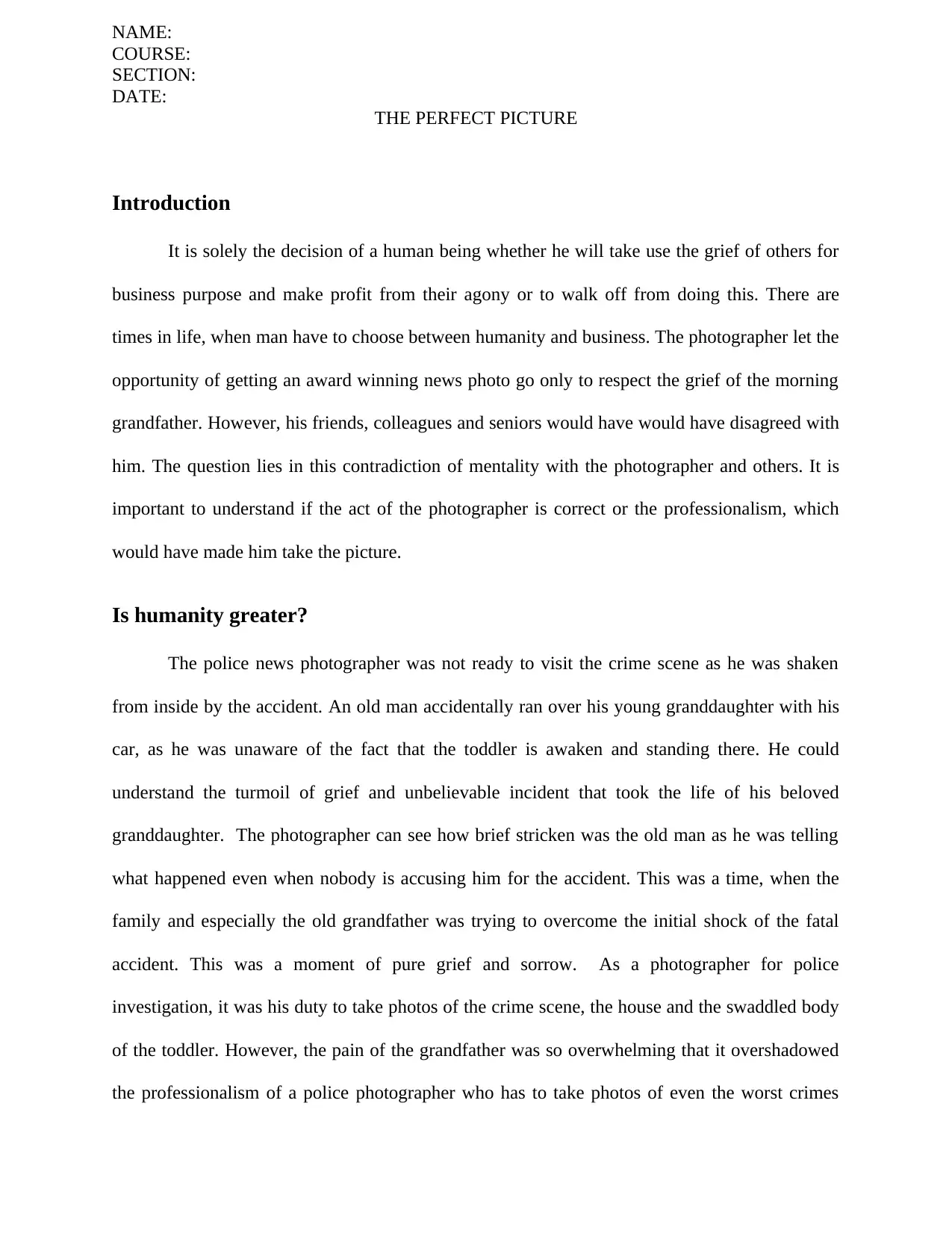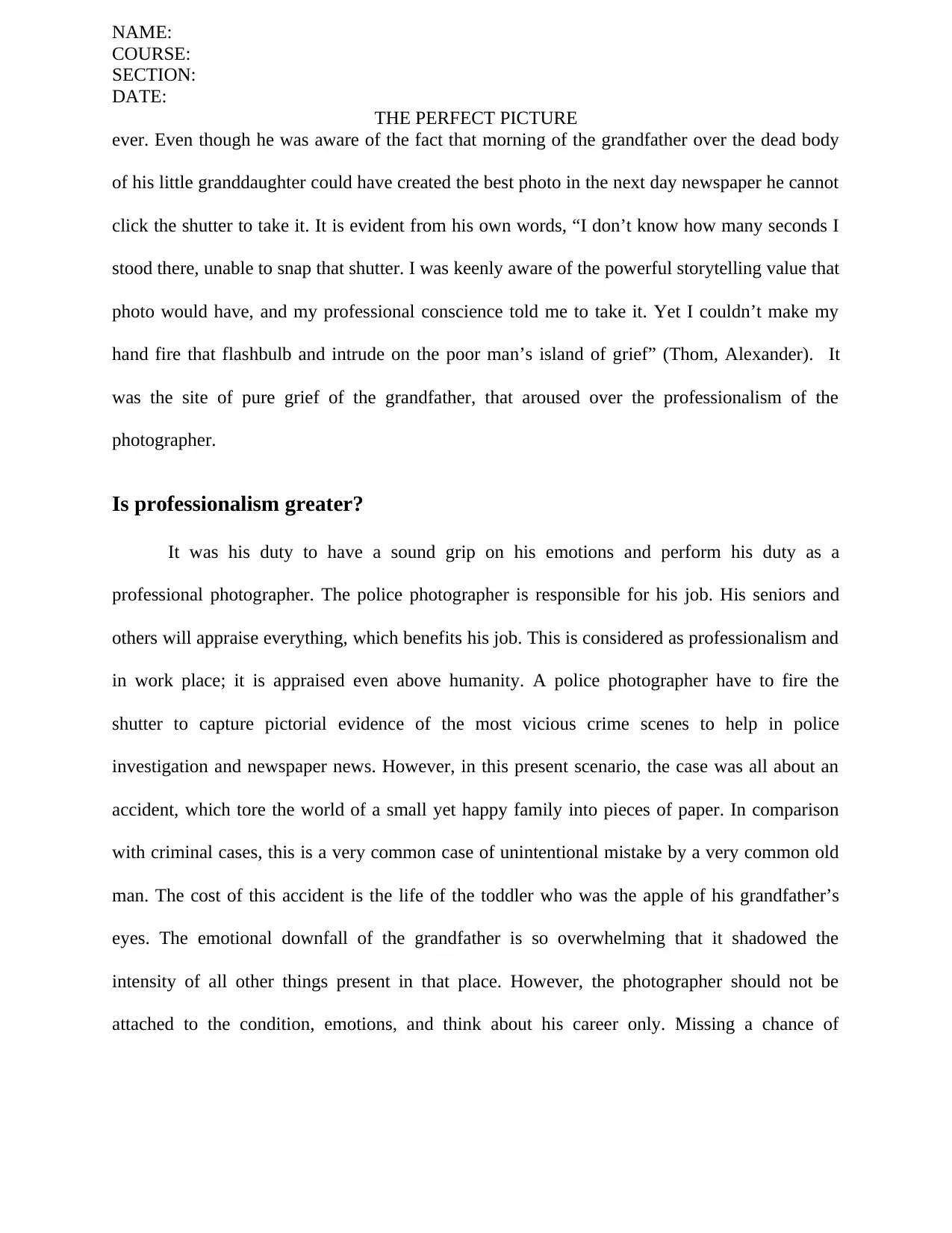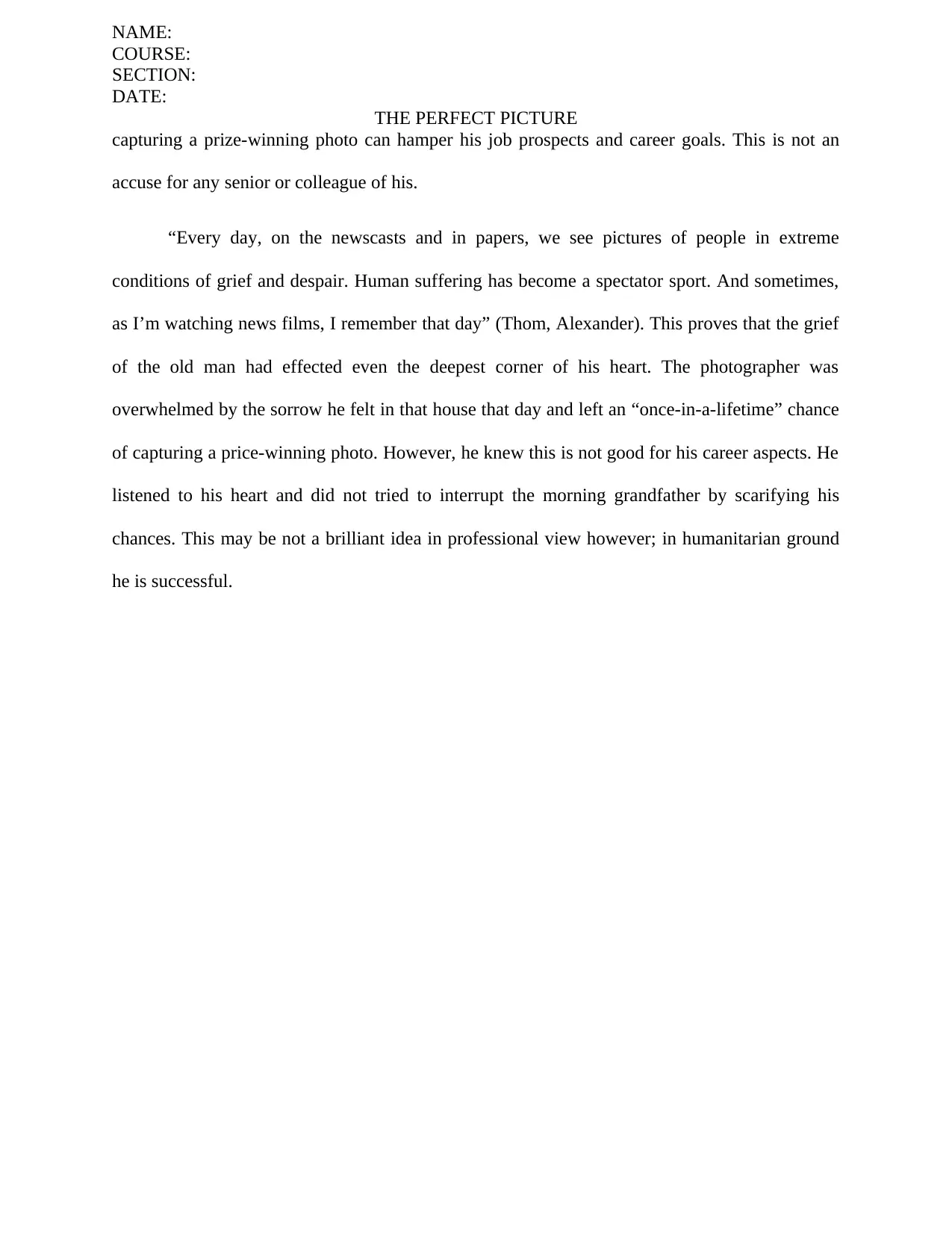The Perfect Picture: A Philosophical Analysis of Ethics in Photography
VerifiedAdded on 2021/11/15
|4
|880
|61
Essay
AI Summary
This essay analyzes Alexander Thom's 'The Perfect Picture,' exploring the central ethical dilemma faced by a police photographer at a tragic crime scene. The photographer, witnessing the profound grief of a grandfather who accidentally killed his granddaughter, must decide whether to capture a potentially award-winning photograph or respect the man's suffering. The essay delves into the conflict between the photographer's professional duty and his human empathy, examining the tension between the value of a powerful news photo and the sanctity of the grandfather's grief. The analysis discusses the perspectives of the photographer, his colleagues, and the broader implications of photojournalism ethics, ultimately questioning whether humanity or professional obligations should take precedence in such sensitive situations. The essay highlights the emotional impact of the scene on the photographer, his internal struggle, and the long-term consequences of his decision, emphasizing the broader societal implications of depicting human suffering for public consumption.
1 out of 4






![[object Object]](/_next/static/media/star-bottom.7253800d.svg)